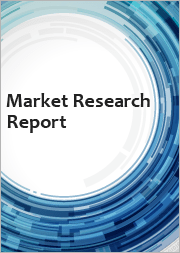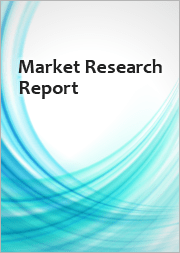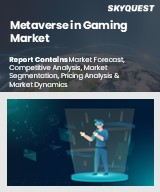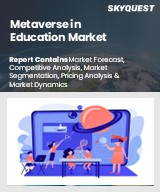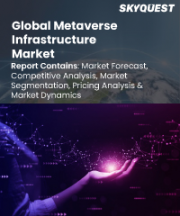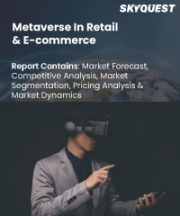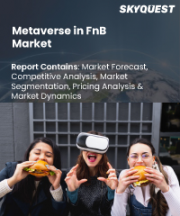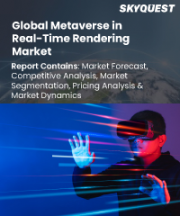
|
시장보고서
상품코드
1856554
패션용 메타버스 시장 : 컴포넌트, 테크놀러지, 애플리케이션, 최종사용자, 배포 모드별 - 세계 예측(2025-2032년)Metaverse in Fashion Market by Component, Technology, Application, End User, Deployment Mode - Global Forecast 2025-2032 |
||||||
패션용 메타버스 시장은 2032년까지 CAGR 33.45%로 1,987억 달러로 성장할 것으로 예측됩니다.
| 주요 시장 통계 | |
|---|---|
| 기준연도 2024 | 197억 4,000만 달러 |
| 추정연도 2025 | 263억 달러 |
| 예측연도 2032 | 1,987억 달러 |
| CAGR(%) | 33.45% |
몰입형 디지털 체험과 패션 비즈니스의 융합을 프레임화하여 디자인, 커머스, 고객 참여의 전략적 우선순위를 정
몰입형 기술과 패션의 융합은 브랜드 표현, 소비자와의 상호작용, 제품수명주기의 새로운 영역을 창출하고 있습니다. 오늘날 의류, 액세서리, 명품의 리더은 디지털 자산, 가상 경험, 물리적 생산이 공존하고 끊임없이 영향을 미치고받는 현실에 직면해 있습니다. 서론에서는 소비자의 기대, 창의적인 생산 워크플로우, 상품화 모델이 오프라인 매장과 전통적 E-Commerce를 넘어선 환경에 어떻게 적응하고 있는지를 강조함으로써 논의의 틀을 만들었습니다.
새로운 기술력은 디지털 의류의 제작, 배포, 인증에 있으며, 마찰을 줄이고, 그 결과 크리에이티브 팀이 시즌 컬렉션과 협업을 구상하는 방식을 바꾸고 있습니다. 동시에 소매 및 마케팅 부문은 브랜드 스토리텔링과 커머스 채널로 몰입형 이벤트와 가상 마켓플레이스를 시도하고 있습니다. 이 첫 번째 섹션은 성공적인 전략을 위해서는 디자인, 기술, 광고 팀 간의 기능적 조율이 필요하며, 디지털 의류와 가상 공간을 주변적인 실험이 아닌 핵심 제품 및 채널에 대한 투자로 취급하려는 의지가 필요하다는 점을 강조하고 있습니다. 강조하고 있습니다.
공통의 어휘를 정립하고, 주요 작동 원동력을 매핑함으로써, 이 소개서는 디지털과 물리적 고객 여정이 점점 더 융합되는 상황에서 리더가 자원을 어디에 배분하고, 어떤 이해관계자를 참여시키고, 성과를 어떻게 측정해야 하는지를 평가할 수 있도록 준비시켜줍니다.
민주화된 3D 제작, 몰입형 채널, 디지털 오너십 모델이 제품수명주기, 크리에이티브 워크플로우, 고객 가치 교환을 재구성하는 방법
민주화된 3D 컨텐츠 제작, 분산화된 디지털 소유권 모델, 체험형 소매에 대한 소비자의 욕구가 결합되어 패션의 상황이 변화하고 있습니다. 이러한 혁신적 변화는 브랜드가 아이디어 발상부터 재판매까지 제품수명주기를 재검토하고, 전통적 캘린더와 공급망에 가상 우선의 사고방식을 통합하도록 촉구하고 있습니다. 디자이너들은 실시간 시각화 및 증강현실(AR) 툴을 사용하여 프로토타이핑을 가속화하고, 물리적 샘플의 필요성을 줄이고, 분산된 팀 간의 협업을 효율화하고 있습니다.
이와 함께 몰입형 채널이 가치 창출과 획득 방식을 바꾸고 있습니다. 가상 이벤트와 마켓플레이스를 통해 브랜드는 물리적 장소의 제약 없이 매력적인 세계 잠재고객에게 다가갈 수 있으며, 검증된 디지털 증명 메커니즘을 통해 새로운 형태의 희소성과 수집 가능한 가치를 제공할 수 있습니다. 그 결과, 브랜드 전략은 획일적인 캠페인에서 한정적인 디지털 투하, 인터랙티브 스토리텔링, 대면 활성화가 결합된 다층적인 경험으로 진화하고 있습니다.
운영 측면에서는 이러한 전환에 따라 분야별 인재에 대한 투자, 플랫폼 및 컨텐츠 프로바이더와의 새로운 파트너십, IP 및 데이터 거버넌스 구조가 필요합니다. 결과적으로, 이러한 변화를 프로세스와 측정의 틀을 재구성할 수 있는 기회로 여기는 조직은 창의적 혁신을 지속가능한 매출과 장기적인 로열티로 전환하는 데 있으며, 가장 유리한 위치에 서게 될 것입니다.
진화하는 관세 제도와 무역 정책의 조정이 조달 선택, 비용 구조, 디지털과 물리적 하이브리드 제품 전략의 구성에 어떤 영향을 미치는지 살펴봅니다.
무역 정책의 조정과 관세 제도는 세계 조달, 재고 계획, 비용 구조에 큰 영향을 미칠 수 있습니다. 관세 제도의 변화는 하드웨어 부품, 생산 투입물, 완제품의 이동에 영향을 미치고, 그 결과 제조 거점을 어디에 둘지, 국경을 넘는 제품에 어떤 가격을 매길지, 라스트 마일 물류에 어떤 파트너를 선택할지 등의 의사결정이 달라집니다. 물리적 의류와 디지털 트윈이 결합된 하이브리드 상품을 시도하는 기업에게 관세의 복잡성은 관세 분류 및 가치 평가에 대한 새로운 고려 사항을 가져옵니다.
기업이 적응함에 따라 갑작스러운 관세 변화에 노출될 위험을 줄이기 위해 공급업체와의 관계와 지역별 조달 전략을 재평가했습니다. 이를 위해서는 관세 모니터링과 시나리오 플래닝을 강화해야 하지만, 동시에 생산 생태계와 기술 공급망이 일치하는 지역특화 기회를 가져다 줄 것입니다. 기업은 점점 더 조달 민첩성과 장기적인 공급업체 육성 사이의 균형을 맞추기 위해 빠른 디지털 샘플링과 확장 가능한 물리적 생산을 모두 지원할 수 있는 계약 및 제조 파트너를 우선순위에 두고 있습니다.
결국, 관세 동향은 기업에게 상업, 공급망, 법무 팀 간의 기능 간 협업을 더욱 강화할 것을 촉구하고 있습니다. 기업은 몰입형 커머스에 대한 전략적 야망과 비용, 리드타임, 규제 준수에 대한 현실적인 결정을 조화시켜 변화하는 무역 정책에 직면하더라도 디지털 구상의 탄력성을 유지할 수 있도록 해야 합니다.
패션 메타바 구상의 전략적 투자 및 운영 의사결정에 있으며, 기술 스택, 딜리버리 모델, 최종사용자 프로파일을 일치시키는 레이어 세분화 관점
인사이트 있는 세분화는 이해관계자들이 투자와 인력을 어디에 할당해야 하는지를 파악하는 동시에 다양한 기술과 제공 모델이 고객 경험과 운영 요구 사항을 어떻게 형성하는지 이해하는 데 도움이 됩니다. 시장 세분화를 통해 자본 지출과 경상적 매출 기회가 어디에 집중되어 있는지, 제품별로 통합 및 지원 요구가 어떻게 다른지 파악할 수 있습니다. 기술별로는 3D 시각화, 증강현실, 혼합현실, 가상현실을 조사하여 각 기술이 크리에이티브 팀과 소비자에게 제공하는 명확한 기술 프로파일과 사용자 경험에 대한 기대치를 확인했습니다. 이용 사례별로는 가상 클로징, 가상 이벤트, 가상 마켓플레이스, 가상 스토어 분야를 조사하여 이용 사례에 따라 컨텐츠 시퀀싱, 커머스 통합 패턴, 커뮤니티 관리 방식이 다르다는 것을 밝혀냈습니다. 최종사용자별로 개인 소비자, 고급 브랜드, 대중 시장 브랜드별로 시장을 조사한 결과, 고도로 큐레이션된 고급 제품과 규모 중심의 대중 시장 제안 사이에 구매 행동, 브랜드 경제, 고객 생애주기의 역학이 다르다는 것을 확인했습니다. 배포 모드에 따라 클라우드 기반과 On-Premise로 시장을 조사했으며, 확장성, 제어, 데이터 레지던시, 레거시 기업 시스템과의 통합에 대한 트레이드 오프가 명확해집니다.
이러한 세분화를 종합해 보면, 기술, 배포, 비즈니스 모델에 대한 결정은 협력적으로 이루어져야 한다는 것을 알 수 있습니다. 예를 들어 고급 브랜드는 독점성을 우선시하므로 첨단 제어가 가능한 매니지드 서비스나 On-Premise를 선호할 수 있지만, 대중 시장 기업은 대규모 사용자 기반에 서비스를 제공하기 위해 클라우드 기반 소프트웨어와 확장 가능한 시각화 툴에 더 많은 관심을 기울입니다. 클라우드 기반 소프트웨어와 확장 가능한 시각화 툴에 끌릴 수 있습니다. 마찬가지로 가상 이벤트와 마켓플레이스는 강력한 상호운용성과 안전한 트랜잭션 레이어를 요구하며, 가상웨어 워크플로우에서는 일관된 에셋 표준과 디자인 및 엔지니어링 팀 간의 긴밀한 협업이 중요합니다. 이러한 부문에 특화된 인사이트를 통합함으로써 리더는 조달, 인재, 파트너 전략을 각 구상의 구체적인 운영 및 상업적 프로파일에 맞게 조정할 수 있습니다.
세계 브랜드 표준과 지역별 실행, 규정의 뉘앙스, 차별화된 소비자 행동, 몰입형 패션 구상을 위한 지역별 플레이북을 조화롭게 조화시키는 것
지역별 역학관계는 패션 브랜드가 몰입형 경험과 디지털 자산에 접근하는 방식을 형성하고, 차별화된 기회와 제약조건을 만들어냅니다. 미국 대륙에서는 성숙한 디지털 결제와 인플루언서 경제, 탄탄한 소비자 확산 곡선, 강력한 컨텐츠 생태계에 힘입어 가상 시장과 소비자 직결형 디지털 드롭의 실험이 활발하게 진행되고 있습니다. 반면, 유럽, 중동, 아프리카는 규제 체계와 문화적 취향이 모자이크처럼 변화하고 있으며, 레거시 럭셔리 클러스터와 지역 파트너십과 현지화된 컨텐츠 경험을 우선시하는 급성장 시장이 공존하고 있습니다. 지적재산권, 소비자 보호, 국경을 넘는 상거래는 이러한 다양성에서 미묘한 접근이 필요합니다.
아시아태평양에서는 고도로 발달한 소비자 기반, 모바일 우선의 인프라, 플랫폼 네이티브 커머스 모델이 증강현실과 혼합현실 경험의 채택을 가속화하고 있습니다. 이들 지역에서 사업을 운영하는 브랜드는 세계 브랜드의 일관성과 각 지역의 소비자 행동에 맞는 크리에이티브 실행, 통화 및 결제 통합, 플랫폼 파트너십의 균형을 맞추어야 합니다. 또한 특정 지역공급망과 제조의 근접성은 디지털과 물리적 하이브리드 제품 프로그램을 시범적으로 운영할 장소와 디지털과 물리적 주문을 결합한 주문 처리를 어떻게 구성할 것인지에 대한 의사결정에 영향을 미칠 수 있습니다.
전략이 국경을 넘나들면서 법률, 재정, 문화의 차이로 인해 각 지역의 채널과 파트너 생태계에 최적화하면서도 브랜드의 무결성을 유지하는 적응형 로드맵이 요구됩니다. 효과적인 지역별 플레이북은 자산 거버넌스 및 상호운용성을 위한 세계 표준과 컨텐츠, 커뮤니티, 커머스 통합에 대한 전술적 지역 투자를 결합한 것입니다.
전략적 파트너십, 전문 서비스 프로바이더, 신생 인프라 기업이 경쟁 우위를 정의하고 지속가능한 디지털 소유권 모델을 실현하는 방법
메타버스와 패션 생태계에서의 경쟁력은 디자인 혁신, 플랫폼 도달 범위, 운영 우수성의 조합에 의해 결정됩니다. 주요 기술 프로바이더들은 자산 생성, 권리 관리, 실시간 시각화를 위한 상호 운용 가능한 툴을 개발하고, 전문 서비스 업체들은 크리에이티브와 기술을 연결하는 매니지드 서비스 및 전문 서비스를 제공합니다. 패션 브랜드와 대중 브랜드는 플랫폼 사업자, 스튜디오 네트워크, 인프라 공급업체와 전략적 파트너십을 맺어 경험까지의 시간을 단축하고 선점 효과를 얻고 있습니다.
또한 일부 스타트업은 지속가능한 디지털 소유권 모델을 가능하게 하는 인증, 출처, 2차 시장 인프라에 초점을 맞추었습니다. 이들 기업은 브랜드 보호에 대한 우려와 수집품 드롭 및 재판매 생태계를 통한 지속적인 참여 기회를 모두 충족시키고 있습니다. 많은 구상이 파일럿 또는 한정된 시리즈로 구성되어 광범위한 배포 전에 소비자 수요와 기술적 타당성을 검증하기 위해 더 광범위하게 배포됩니다.
경쟁 구도를 파악하기 위해서는 대규모 실시간 렌더링, 보안 트랜잭션 레일, 기능 간 컨텐츠 파이프라인 등 역량 격차를 파악하고, 사내 강점을 보완할 수 있는 파트너십을 우선순위에 두어야 합니다. 사내에 우수 센터를 구축하는 한편, 전문적 역량에 대해는 외부 전문가를 활용함으로써 통제와 속도의 실용적인 균형을 맞출 수 있습니다.
거버넌스, 인재, 파트너십, 기술 선택을 조정하여 실험적 파일럿에서 재현 가능한 몰입형 커머스 프로그램으로 전환할 수 있는 실행 가능한 단계
리더는 조직 구조, 역량 개발, 파트너 생태계를 전략적와 일치시킴으로써 실험에서 규율 있는 확장으로 전환해야 합니다. 크리에이티브 리더십, 기술, 커머스 팀을 연결하는 임원 스폰서십을 구축하고, 브랜드 건전성, 고객 참여, 업무 효율성과 관련된 명확한 성공 지표를 정의하는 것부터 시작해야 합니다. 디자인 의도를 최적화된 3D 자산으로 변환할 수 있고, 증강현실 및 혼합현실 플랫폼의 제약과 기회를 이해할 수 있는 인재에 투자합니다.
기술 부채를 최소화하면서 옵션성을 유지하면서 단계적 기술 선택과 벤더 참여 접근 방식을 채택합니다. 락인(Lock-in)을 피하기 위해 상호운용성과 오픈 포맷을 지원하는 플랫폼과 표준을 우선시하고, 시장 출시 속도와 지속적인 운영 탄력성이 중요한 경우 매니지드 서비스 계약을 체결합니다. 마찬가지로 중요한 것은 지적재산권과 데이터 거버넌스입니다. 브랜드 자산과 규제 준수를 보호하기 위해 권리 양도, 라이선스 조건, 소비자 데이터 스튜어드십에 대한 명확한 정책을 도입합니다.
마지막으로 물리적 가치 제안과 디지털 가치 제안을 신중하게 결합한 상업적 모델을 시범적으로 도입합니다. 예를 들어 페어 릴리즈, 체험형 액티베이션, 로열티를 통합한 디지털 콜렉터블 등입니다. 이러한 권장 사항을 실행에 옮기면 기업은 창의적인 혁신을 차별화된 브랜드 경험을 대규모로 제공하는 반복 가능한 프로그램으로 전환할 수 있습니다.
이해관계자 인터뷰, 전문가 자문, 배포 검토를 결합한 강력한 혼합 방법론 접근 방식을 통해 패션 및 기술 리더를 위한 실용적이고 의사결정에 초점을 맞춘 인사이트를 제공
이번 조사는 몰입형 기술과 패션 운영의 관계에 대한 실질적이고 신뢰할 수 있는 이해를 보장하기 위해 이해관계자 1차 인터뷰, 전문가 자문, 업계 전개에 대한 엄격한 검토를 통합한 결과입니다. 1차 입력에는 크리에이티브 디렉터, 수석 엔지니어, 공급망 리더, 커머스 임원과의 구조화된 대화를 통해 부서 간 관점을 파악하고 이용 사례의 요구 사항을 검증하는 과정이 포함되었습니다. 전문가 컨설팅은 기술적 타당성, 통합 패턴, 장기적인 운영 고려사항에 대한 탐색을 통해 이러한 인풋을 보완했습니다.
기술 성숙도, 표준화 개발, 주목할 만한 상업적 구상을 설명하기 위해 2차 자료를 검토했습니다. 이 접근 방식은 질적 인사이트와 관찰 가능한 구현 및 벤더의 역량과의 삼각관계를 중시했습니다. 분석은 수치적 시장 정량화에 의존하지 않고 이용 사례의 실현 가능성, 통합의 복잡성, 조직의 즉각적인 반응성에 초점을 맞췄습니다. 필요에 따라 시나리오 분석과 민감도 검사를 통해 무역, 규제, 플랫폼 조건이 변화하는 상황에서 전략적 영향에 대한 스트레스 테스트를 수행했습니다.
조사 방법의 핵심은 실용적인 인텔리전스입니다. 조사 결과는 기술 조달, 파트너 선정, 거버넌스, 파일럿 설계에 대한 의사결정에 도움이 될 수 있도록 구성되어 있습니다. 이러한 접근 방식은 권장 사항이 실무자의 현실에 뿌리를 두고 다양한 비즈니스 맥락에서 몰입형 패션 구상을 확장하기 위해 입증된 경로를 반영하도록 보장합니다.
크리에이티브, 운영, 거버넌스의 통합적 관행이 몰입형 패션 구상의 장기적 가치를 어떻게 실현할 수 있는지를 보여주는 전략적 함의가 집약되어 있습니다.
이 보고서의 누적된 이야기는 몰입형 기술이 일시적인 동향이 아니라 패션 브랜드가 제품을 디자인하고, 관여하고, 상품화하는 방식의 구조적 변화라는 점을 강조합니다. 디지털 의류와 가상 경험은 브랜드가 스토리텔링을 확장하고, 지속적인 참여를 유도하고, 대체 매출과 로열티 메커니즘을 탐색할 수 있게 함으로써 새로운 차별화의 축을 창출할 수 있습니다. 그러나 이러한 기회를 실현하기 위해서는 인재, 프로세스, 상호 운용 가능한 기술 플랫폼에 대한 의도적인 투자가 필요합니다.
성공의 열쇠는 디지털 구상을 단순한 실험이 아닌 전략적 사업 라인으로 취급하는 데 있습니다. 기능 간 협업, 지적재산권 및 데이터에 대한 명확한 거버넌스, 유연한 기술 아키텍처를 통해 조직은 브랜드 표준을 유지하면서 빠르게 반복할 수 있습니다. 또한 지역을 고려한 전략은 세계 야망이 지역적 연관성과 규제 준수를 통해 실행될 수 있도록 보장합니다. 창의적인 야망과 운영상의 규율, 파트너십에 대한 신중한 접근 방식을 결합함으로써 리더는 진화하는 생태계에서 의미 있는 가치와 회복력을 이끌어낼 수 있습니다.
마지막으로 패션 업계가 몰입형 환경을 도입하는 것은 고객과의 관계와 제품수명주기를 재구성할 수 있는 실질적인 기회를 제공합니다. 이러한 역량을 핵심 전략 기획에 통합하는 기업은 장기적인 인게이지먼트를 확보하고 디지털 오너십과 경험 디자인의 새로운 규범을 형성하는 데 있으며, 더 유리한 고지를 점할 수 있을 것으로 보입니다.
목차
제1장 서문
제2장 조사 방법
제3장 개요
제4장 시장 개요
제5장 시장 인사이트
제6장 미국 관세의 누적 영향 2025
제7장 AI의 누적 영향 2025
제8장 패션용 메타버스 시장 : 컴포넌트별
- 하드웨어
- 서비스
- 매니지드 서비스
- 전문 서비스
- 소프트웨어
제9장 패션용 메타버스 시장 : 기술별
- 3D 시각화
- 증강현실
- 혼합현실
- 가상현실
제10장 패션용 메타버스 시장 : 용도별
- 가상 폐막
- 가상 이벤트
- 가상 마켓플레이스
- 가상 스토어
제11장 패션용 메타버스 시장 : 최종사용자별
- 개인소비자
- 고급 브랜드
- 대중 브랜드
제12장 패션용 메타버스 시장 : 배포 모드별
- 클라우드 기반
- 온프레미스
제13장 패션용 메타버스 시장 : 지역별
- 아메리카
- 북미
- 라틴아메리카
- 유럽, 중동 및 아프리카
- 유럽
- 중동
- 아프리카
- 아시아태평양
제14장 패션용 메타버스 시장 : 그룹별
- ASEAN
- GCC
- EU
- BRICS
- G7
- NATO
제15장 패션용 메타버스 시장 : 국가별
- 미국
- 캐나다
- 멕시코
- 브라질
- 영국
- 독일
- 프랑스
- 러시아
- 이탈리아
- 스페인
- 중국
- 인도
- 일본
- 호주
- 한국
제16장 경쟁 구도
- 시장 점유율 분석, 2024
- FPNV 포지셔닝 매트릭스, 2024
- 경쟁사 분석
- Roblox Corporation
- Meta Platforms, Inc.
- Epic Games, Inc.
- NVIDIA Corporation
- Unity Software Inc.
- Microsoft Corporation
- Adobe Inc.
- Nike, Inc.
- adidas AG
- Animoca Brands Corporation Limited
The Metaverse in Fashion Market is projected to grow by USD 198.70 billion at a CAGR of 33.45% by 2032.
| KEY MARKET STATISTICS | |
|---|---|
| Base Year [2024] | USD 19.74 billion |
| Estimated Year [2025] | USD 26.30 billion |
| Forecast Year [2032] | USD 198.70 billion |
| CAGR (%) | 33.45% |
Framing the convergence of immersive digital experiences and fashion operations to set strategic priorities for design, commerce, and customer engagement
The intersection of immersive technologies and fashion is producing a new domain of brand expression, consumer interaction, and product lifecycles. Today's leaders in apparel, accessories, and luxury goods are confronting a reality where digital assets, virtual experiences, and physical production coexist and influence each other continuously. The introduction frames the discussion by highlighting how consumer expectations, creative production workflows, and commercialization models are adapting to environments that extend beyond physical stores and traditional e-commerce.
Emerging technical capabilities have reduced friction in creating, distributing, and authenticating digital garments, which in turn changes how creative teams conceive seasonal collections and collaborations. Simultaneously, retail and marketing functions are experimenting with immersive events and virtual marketplaces as channels for brand storytelling and commerce. This opening section emphasizes that successful strategies will require cross-functional coordination between design, technology, and commercial teams, and a willingness to treat digital garments and virtual spaces as core product and channel investments rather than peripheral experiments.
By establishing a common vocabulary and mapping the key forces at work, this introduction prepares leaders to evaluate where to allocate resources, which stakeholders to involve, and how to measure outcomes in a landscape where digital and physical customer journeys increasingly converge.
How democratized 3D creation, immersive channels, and digital ownership models are reshaping product lifecycles, creative workflows, and customer value exchange
The fashion landscape is shifting under the combined influence of democratized 3D content creation, decentralized digital ownership models, and consumer appetite for experiential retail. These transformative shifts push brands to reconsider product lifecycles, from ideation through resale, and to integrate virtual-first thinking into traditional calendars and supply chains. Designers are adopting real-time visualization and augmented reality tools that accelerate prototyping and reduce the need for physical samples, thereby streamlining collaboration across dispersed teams.
In parallel, immersive channels are changing how value is created and captured. Virtual events and marketplaces enable brands to reach engaged global audiences without the constraints of physical venues, while verified digital provenance mechanisms support new forms of scarcity and collectible value. Consequently, brand strategies are evolving from one-size-fits-all campaigns to layered experiences that combine limited digital drops, interactive storytelling, and in-person activations.
Operationally, this transition necessitates investments in cross-disciplinary talent, new partnerships with platform and content providers, and governance structures for IP and data. As a result, organizations that treat these shifts as an opportunity to rewire processes and measurement frameworks will be best positioned to convert creative innovation into sustainable revenue and long-term loyalty.
Examining how evolving tariff regimes and trade policy adjustments influence sourcing choices, cost structures, and the orchestration of hybrid digital and physical product strategies
Trade policy adjustments and tariff landscapes can materially influence global sourcing, inventory planning, and cost structures for fashion brands that operate across physical and digital product lines. Changes in tariff regimes affect the movement of hardware components, production inputs, and finished goods, which in turn alters decisions about where to locate manufacturing, how to price cross-border offerings, and which partners to engage for last-mile logistics. For companies experimenting with hybrid offerings-where a physical garment is paired with a digital twin-tariff complexity introduces additional considerations related to customs classification and value assessment.
As organizations adapt, they are reevaluating supplier relationships and regional sourcing strategies to mitigate exposure to sudden duty changes. This requires enhanced tariff monitoring and scenario planning, yet also presents opportunities for regional specialization where production ecosystems and technology supply chains align. Firms are increasingly balancing the trade-offs between sourcing agility and long-term supplier development, prioritizing contracts and manufacturing partners that can support both fast digital sampling and scalable physical production.
Ultimately, tariff developments prompt companies to deepen cross-functional collaboration between commercial, supply chain, and legal teams. They must reconcile strategic ambitions for immersive commerce with pragmatic decisions about cost, lead time, and regulatory compliance, ensuring that digital initiatives remain resilient in the face of shifting trade policies.
A layered segmentation perspective that aligns technology stacks, delivery models, and end-user profiles to strategic investment and operational decisions in fashion metaverse initiatives
Insightful segmentation helps stakeholders pinpoint where to allocate investment and talent while understanding how different technology and delivery models shape customer experiences and operational needs. Based on Component, the market is studied across Hardware, Services, and Software, with Services further segmented into Managed Services and Professional Services; this breakdown clarifies where capital expenditures and recurring revenue opportunities concentrate, and how integration and support needs vary by offering. Based on Technology, the market is studied across 3D Visualization, Augmented Reality, Mixed Reality, and Virtual Reality, highlighting the distinct technical profiles and user experience expectations that each technology brings to creative teams and consumers. Based on Application, the market is studied across Virtual Clothing, Virtual Events, Virtual Marketplaces, and Virtual Stores, revealing how use cases require different content cadences, commerce integration patterns, and community management practices. Based on End User, the market is studied across Individual Consumers, Luxury Brands, and Mass Market Brands, which underscores diverging purchasing behaviors, brand economics, and customer lifetime dynamics between highly curated luxury offerings and scale-driven mass market propositions. Based on Deployment Mode, the market is studied across Cloud Based and On Premises, exposing trade-offs between scalability, control, data residency, and integration with legacy enterprise systems.
Taken together, these segmentation lenses illustrate that decisions about technology, deployment, and business model must be made in concert. For instance, luxury brands prioritizing exclusivity may favor bespoke managed services and on-premises deployments for high-control experiences, whereas mass market players often gravitate to cloud-based software and scalable visualization tools to serve large user bases. Similarly, virtual events and marketplaces demand robust interoperability and secure transactional layers, while virtual clothing workflows place a premium on consistent asset standards and tight collaboration between design and engineering teams. By synthesizing these segment-focused insights, leaders can better align procurement, talent, and partner strategies with the specific operational and commercial profiles of their initiatives.
Regional playbooks for immersive fashion initiatives that reconcile global brand standards with localized execution, regulatory nuances, and differentiated consumer behaviors
Regional dynamics create differentiated opportunities and constraints that shape how fashion brands approach immersive experiences and digital assets. In the Americas, robust consumer adoption curves and strong content ecosystems favor experimentation with virtual marketplaces and direct-to-consumer digital drops, supported by a mature digital payments and influencer economy. Meanwhile, Europe, Middle East & Africa presents a mosaic of regulatory regimes and cultural preferences, where legacy luxury clusters coexist with fast-growth markets that prioritize regional partnerships and localized content experiences. This variation requires nuanced approaches to intellectual property, consumer protection, and cross-border commerce.
In Asia-Pacific, a highly engaged consumer base, advanced mobile-first infrastructures, and platform-native commerce models accelerate the adoption of augmented and mixed reality experiences. Brands operating across these regions must balance global brand consistency with localized creative execution, currency and payment integrations, and platform partnerships that align with consumer behavior in each territory. Moreover, supply chain and manufacturing proximities in specific regions influence decisions about where to pilot hybrid digital-physical product programs and how to structure fulfillment for paired digital and physical orders.
As strategies cross borders, legal, fiscal, and cultural differences demand adaptive road maps that preserve brand integrity while optimizing for regional channels and partner ecosystems. Effective regional playbooks combine global standards for asset governance and interoperability with tactical local investments in content, community, and commerce integrations.
How strategic partnerships, specialized service providers, and emerging infrastructure firms are defining competitive advantages and enabling sustainable digital ownership models
Competitive positioning within the metaverse and fashion ecosystem is determined by a combination of design innovation, platform reach, and operational excellence. Leading technology providers are advancing interoperable tooling for asset creation, rights management, and real-time visualization, while specialized service firms offer managed and professional services that bridge creative and technical disciplines. Fashion houses and mass-market brands are forming strategic partnerships with platform operators, studio networks, and infrastructure vendors to accelerate time-to-experience and to capture first-mover engagement advantages.
Additionally, a cohort of emerging companies is focused on authentication, provenance, and secondary market infrastructures that enable sustainable digital ownership models. These players address both brand protection concerns and opportunities for ongoing engagement through collectible drops and resale ecosystems. Collaborations across established brands and nimble technology partners are common, with many initiatives structured as pilots or limited series to validate consumer demand and technical feasibility before broader rollouts.
For organizations assessing the competitive landscape, it is essential to map capability gaps-such as real-time rendering at scale, secure transaction rails, and cross-functional content pipelines-and to prioritize partnerships that complement internal strengths. Building internal centers of excellence while leveraging external experts for specialized capabilities creates a pragmatic balance between control and speed.
Actionable steps for transitioning from experimental pilots to repeatable immersive commerce programs by aligning governance, talent, partnerships, and technology choices
Leaders must move from experimentation to disciplined scaling by aligning organizational structure, capability development, and partner ecosystems with strategic objectives. Begin by establishing executive sponsorship that bridges creative leadership, technology, and commerce teams, and by defining clear success metrics tied to brand health, customer engagement, and operational efficiency. Invest in talent that can translate design intent into optimized 3D assets and that understands the constraints and opportunities of augmented and mixed reality platforms.
Adopt a phased approach to technology selection and vendor engagement that preserves optionality while minimizing technical debt. Prioritize platforms and standards that support interoperability and open formats to avoid lock-in, and contract managed services where speed to market and ongoing operational resilience are critical. Equally important is the governance of intellectual property and data: implement clear policies for rights assignment, licensing terms, and consumer data stewardship to protect brand equity and regulatory compliance.
Finally, pilot commercial models that thoughtfully combine physical and digital value propositions-such as paired releases, experiential activations, and loyalty-integrated digital collectibles-and evaluate outcomes through customer feedback and behavioral metrics. By operationalizing these recommendations, organizations can convert creative innovation into repeatable programs that deliver differentiated brand experiences at scale.
A robust mixed-methods approach combining stakeholder interviews, expert consultations, and deployment reviews to produce pragmatic, decision-focused insights for fashion and technology leaders
This research synthesizes primary stakeholder interviews, expert consultations, and a rigorous review of industry deployments to ensure a practical and credible understanding of how immersive technologies intersect with fashion operations. Primary inputs include structured conversations with creative directors, head engineers, supply chain leads, and commerce executives to capture cross-functional perspectives and to validate use case requirements. Expert consultations complemented these inputs by probing technical feasibility, integration patterns, and long-term operational considerations.
Secondary sources were reviewed to contextualize technological maturity, standards development, and notable commercial initiatives. The approach emphasized triangulation of qualitative insights with observable implementations and vendor capabilities. Analysis focused on use-case viability, integration complexity, and organizational readiness without relying on numerical market quantifications. Where appropriate, scenario analysis and sensitivity checks were used to stress-test strategic implications under varying trade, regulatory, and platform conditions.
The methodology centers on actionable intelligence: findings are framed to inform decision-making on technology procurement, partner selection, governance, and pilot design. This approach ensures that recommended actions are grounded in practitioner realities and reflect proven pathways for scaling immersive fashion initiatives across diverse operating contexts.
Consolidating strategic implications to show how integrated creative, operational, and governance practices unlock long-term value from immersive fashion initiatives
The cumulative narrative of this report underscores that immersive technologies are not a passing trend but a structural shift in how fashion brands design, engage, and commercialize products. Digital garments and virtual experiences create new axes of differentiation, allowing brands to extend storytelling, create recurring engagement, and explore alternative revenue and loyalty mechanisms. However, realizing these opportunities requires intentional investments in people, processes, and interoperable technology platforms.
Success hinges on treating digital initiatives as strategic lines of business rather than isolated experiments. Cross-functional alignment, clear governance for IP and data, and flexible technology architectures enable organizations to iterate quickly while maintaining brand standards. Furthermore, region-sensitive strategies ensure that global ambitions are executed with local relevance and regulatory compliance. By combining creative ambition with operational discipline and a measured approach to partnerships, leaders can unlock meaningful value and resilience in an evolving ecosystem.
In closing, the fashion industry's engagement with immersive environments presents a substantive opportunity to reimagine customer relationships and product lifecycles. Those who integrate these capabilities into core strategic planning will be better positioned to capture long-term engagement and to shape emerging norms in digital ownership and experience design.
Table of Contents
1. Preface
- 1.1. Objectives of the Study
- 1.2. Market Segmentation & Coverage
- 1.3. Years Considered for the Study
- 1.4. Currency & Pricing
- 1.5. Language
- 1.6. Stakeholders
2. Research Methodology
3. Executive Summary
4. Market Overview
5. Market Insights
- 5.1. Luxury fashion brands collaborating with metaverse platforms to launch exclusive NFT apparel collections
- 5.2. Integration of AI-driven virtual try-on experiences to enhance digital apparel shopping journeys
- 5.3. Emergence of avatar customization marketplaces generating new revenue streams for fashion labels
- 5.4. Blockchain-powered provenance tracking ensuring authenticity of digital fashion collectibles
- 5.5. Interactive virtual fashion shows in VR hosting global audiences in immersive branded environments
- 5.6. Social commerce features embedded in metaverse fashion hubs driving peer-to-peer style recommendations
- 5.7. Sustainability-focused digital-only garment releases reducing environmental impact of traditional production
- 5.8. Cross-platform interoperability standards enabling digital garments to transition seamlessly between virtual worlds
- 5.9. Community co-creation models empowering consumers to design and trade custom digital fashion assets
6. Cumulative Impact of United States Tariffs 2025
7. Cumulative Impact of Artificial Intelligence 2025
8. Metaverse in Fashion Market, by Component
- 8.1. Hardware
- 8.2. Services
- 8.2.1. Managed Services
- 8.2.2. Professional Services
- 8.3. Software
9. Metaverse in Fashion Market, by Technology
- 9.1. 3D Visualization
- 9.2. Augmented Reality
- 9.3. Mixed Reality
- 9.4. Virtual Reality
10. Metaverse in Fashion Market, by Application
- 10.1. Virtual Clothing
- 10.2. Virtual Events
- 10.3. Virtual Marketplaces
- 10.4. Virtual Stores
11. Metaverse in Fashion Market, by End User
- 11.1. Individual Consumers
- 11.2. Luxury Brands
- 11.3. Mass Market Brands
12. Metaverse in Fashion Market, by Deployment Mode
- 12.1. Cloud Based
- 12.2. On Premises
13. Metaverse in Fashion Market, by Region
- 13.1. Americas
- 13.1.1. North America
- 13.1.2. Latin America
- 13.2. Europe, Middle East & Africa
- 13.2.1. Europe
- 13.2.2. Middle East
- 13.2.3. Africa
- 13.3. Asia-Pacific
14. Metaverse in Fashion Market, by Group
- 14.1. ASEAN
- 14.2. GCC
- 14.3. European Union
- 14.4. BRICS
- 14.5. G7
- 14.6. NATO
15. Metaverse in Fashion Market, by Country
- 15.1. United States
- 15.2. Canada
- 15.3. Mexico
- 15.4. Brazil
- 15.5. United Kingdom
- 15.6. Germany
- 15.7. France
- 15.8. Russia
- 15.9. Italy
- 15.10. Spain
- 15.11. China
- 15.12. India
- 15.13. Japan
- 15.14. Australia
- 15.15. South Korea
16. Competitive Landscape
- 16.1. Market Share Analysis, 2024
- 16.2. FPNV Positioning Matrix, 2024
- 16.3. Competitive Analysis
- 16.3.1. Roblox Corporation
- 16.3.2. Meta Platforms, Inc.
- 16.3.3. Epic Games, Inc.
- 16.3.4. NVIDIA Corporation
- 16.3.5. Unity Software Inc.
- 16.3.6. Microsoft Corporation
- 16.3.7. Adobe Inc.
- 16.3.8. Nike, Inc.
- 16.3.9. adidas AG
- 16.3.10. Animoca Brands Corporation Limited






